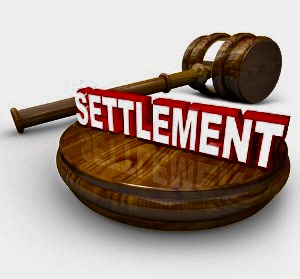
Walsh v Walsh 2018 BCSC 199 deals with an application to interpret or give effect to a settlement agreement, that unfortunately the parties could not ultimately agree upon.
While lawyers typically strive to settle court actions, as well as have an ethical duty to do so, it occasionally occurs that the settlement affected is ambiguous or one party has a change of heart and tries to escape from it.
The courts try very hard to give effect to the spirit and intent of a settlement.
Fieguth v Acklands Ltd (1989) 37 BCLR (2d) 62 BCCA at paragraph 42 offers an often cited authority when dealing with such:
“Many such settlements are very complicated, such as structured settlements, and the deal is usually struck before the documentation can be completed. In such cases the settlement will be binding if there is agreement on the essential terms. When disputes arise in this connection, the question will seldom be one of repudiation as the test cited above is a strict one, but rather a final agreement has been reached, which the parties intend to record informal documentation, or whether the parties have only reached a tentative agreement which will not be binding upon them until the documentation is complete. Generally speaking, litigation is settled on the former rather than the latter basis and parties who reach a settlement should usually be held to their bargains. Subsequent disputes should be resolved by application to the court or by common sense within the framework of the settlement to which the parties have agreed and in accordance with the common practices which prevail amongst members of the bar. It will be rare for conduct subsequent to a settlement agreement to amount to repudiation.”
The parties have a choice of making an application to the court, within the court action, or under the provisions of the Law and Equity act, section 10, which provides the court with the responsibility “to grant, either absolutely or unreasonable conditions that it seemed just, all remedies that any of the parties may appear to be entitled to in respect of any legal or equitable claim properly brought forward by them so that all matters in controversy between the parties may be completely and finally determined and all multiplicity of legal proceedings may be avoided.”
Authorities dealing with section 10 of the Law and Equity act, are Zak v Zak 2015 BC SC 1993 at paragraphs 25 – 28 , and Cheung v Chung 2009 BCSC 1951 at paragraph 15-1.




